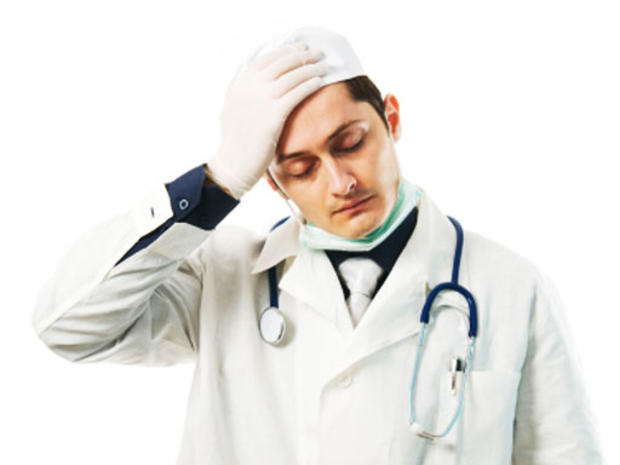Hospital errors rampant, study says: What can patients do?
(CBS) How common are hospital errors? A shocking new study suggests that the number of "adverse events" befalling patients in U.S. hospitals may be 10 times higher than a previous estimate.
If that's right, it means one of every three hospital admissions results in a patient being harmed or even killed not by what led to hospitalization but by mistakes made by doctors and other hospital workers.
The study, published in the April issue of the journal Health Affairs, involved a review of 795 patient charts at three U.S. hospitals. Using a review technique known as the "global trigger tool," a team led by researcher Dr. David C. Classen of the University of Utah detected a whopping 354 adverse events. And that figure might actually understate the number of adverse events, as it was based on potentially incomplete medical records rather than on direct observation in real time, the researchers said in a written statement.
Dr. Classen told CBS News he believes his study gives a more reliable tally of hospital errors than other studies, including a landmark 1999 Institute of Medicine study showing that hospital errors caused up to 98,000 Americans each year.
Is the new estimate accurate?
"It is hard to know that to make of the trigger tool," Dr. Peter J. Pronovost, a patient safety expert at Johns Hopkins University in Baltimore, told CBS News in an email. But he said that "Far too many patients suffer preventable harm in the U.S."
What sorts of events were uncovered in the review? Dr. Classen told CBS News there were "three big ones:"
medication errors, including getting the wrong druge or being given the wrong dose of the right drug;
surgical errors, such as having an operation done on the wrong site or surgical gaffes that result in bleeding or infection;
- hospital-acquired infections, which often result from poor sanitation.
Although health-care workers are the ones who commit the errors, there are things hospital patients can do to reduce their risk, Dr. Classen said.
"Many of the most severe events were preceded by more minor events," he said. "Patients should sure that even minor events are dealt with appropriately."
In other words, if something goes wrong or even seems amiss, speak up.
